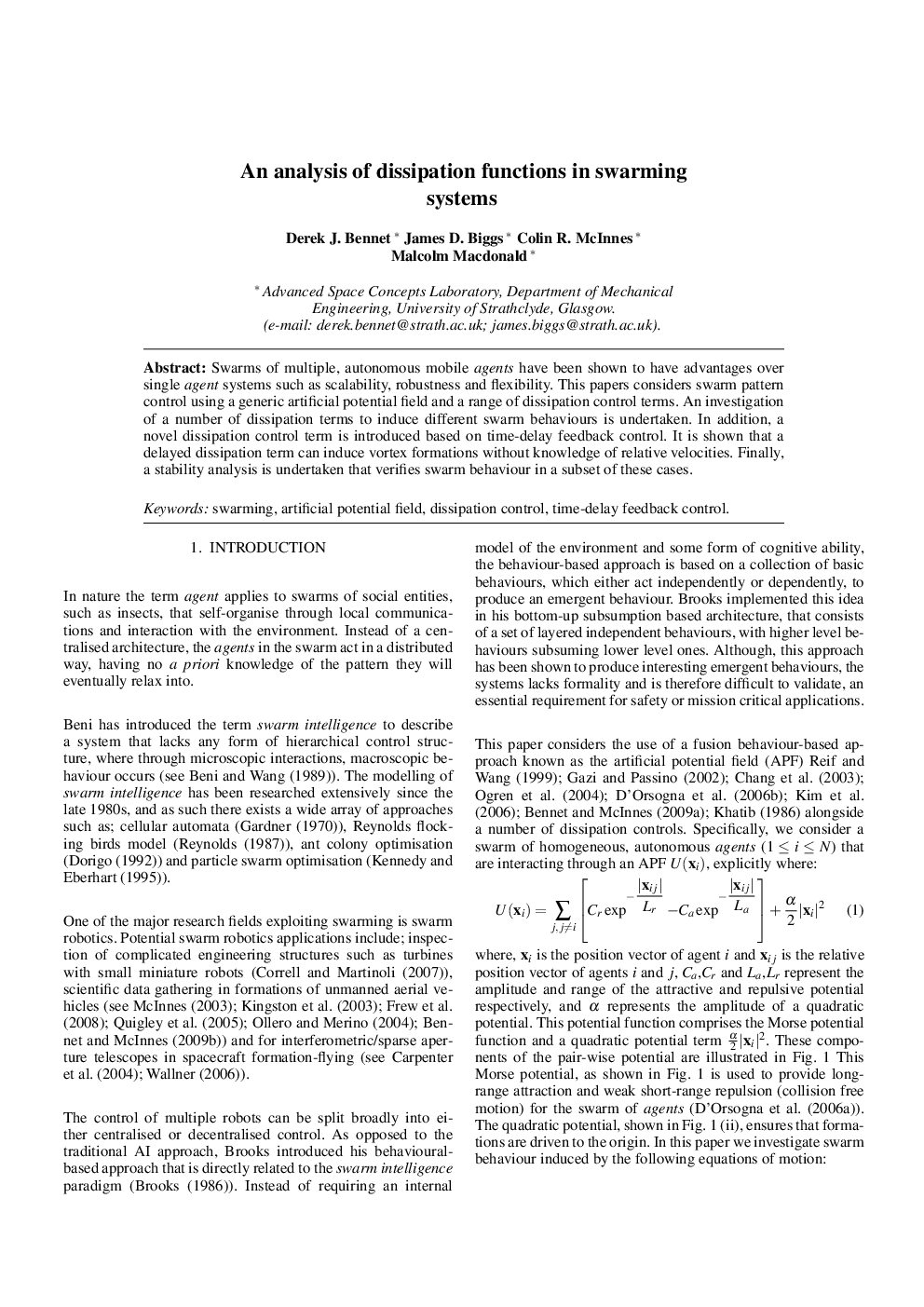| Article ID | Journal | Published Year | Pages | File Type |
|---|---|---|---|---|
| 716090 | IFAC Proceedings Volumes | 2010 | 6 Pages |
Abstract
Swarms of multiple, autonomous mobile agents have been shown to have advantages over single agent systems such as scalability, robustness and flexibility. This papers considers swarm pattern control using a generic artificial potential field and a range of dissipation control terms. An investigation of a number of dissipation terms to induce different swarm behaviours is undertaken. In addition, a novel dissipation control term is introduced based on time-delay feedback control. It is shown that a delayed dissipation term can induce vortex formations without knowledge of relative velocities. Finally, a stability analysis is undertaken that verifies swarm behaviour in a subset of these cases.
Related Topics
Physical Sciences and Engineering
Engineering
Computational Mechanics
